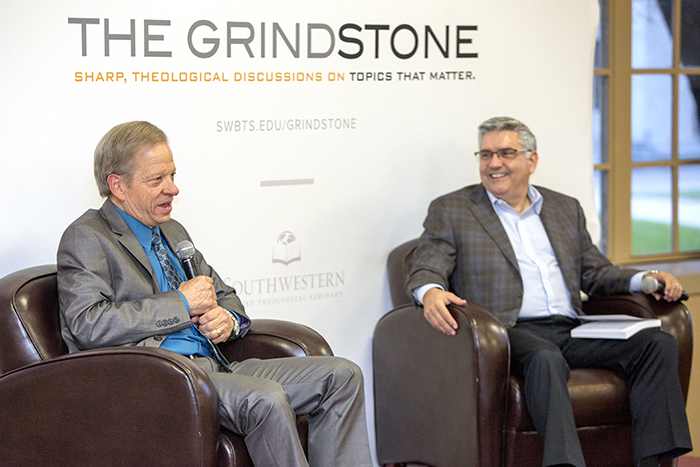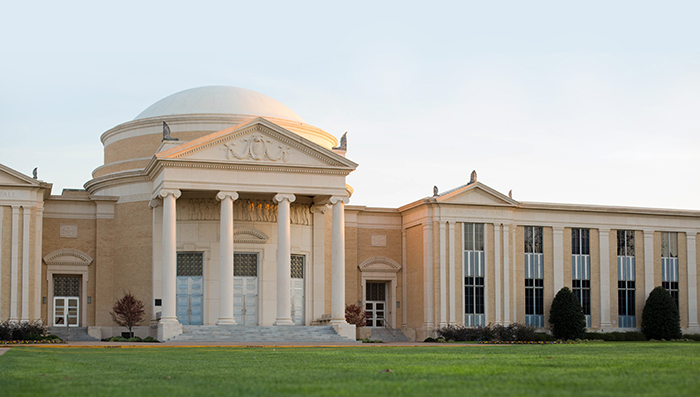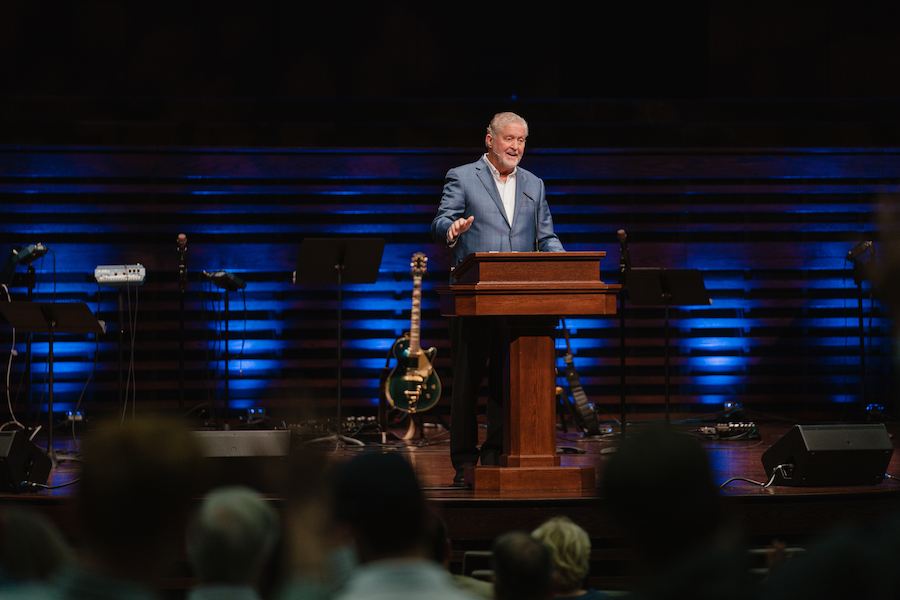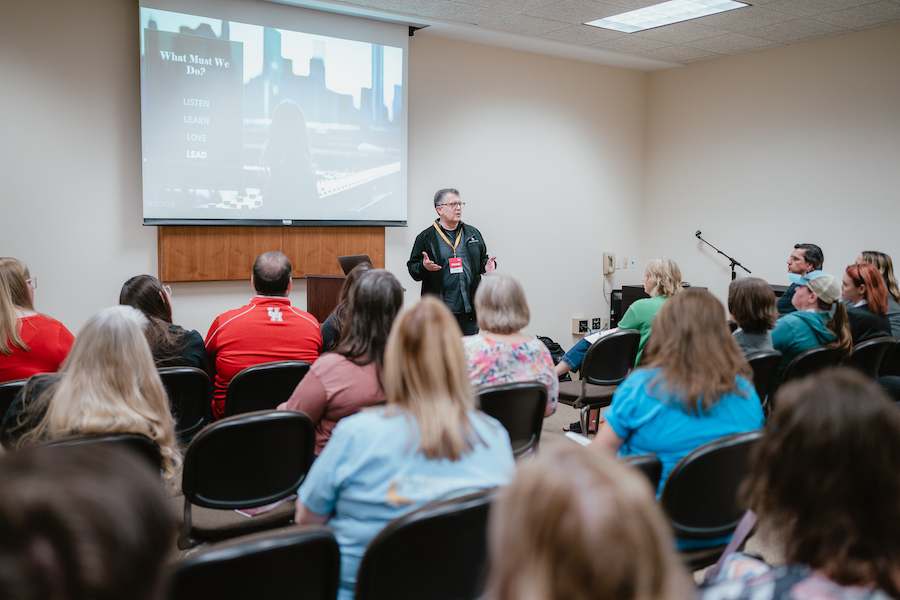George Whitefield’s influence discussed at latest Grindstone

In Dan Nelson’s latest book, A Burning and Shining Light: The Testimony and Witness of George Whitefield, Nelson gives a comprehensive account of the life and ministry of George Whitefield, highlighting his evangelistic preaching as the origin for what became the evangelical movement. During a Grindstone discussion at Southwestern Seminary, Sept. 25, Nelson discussed his book as well as the need for present-day preachers to go back to the evangelistic preaching style of Whitefield.
Nelson, a pastor and a trustee for Southwestern, has devoted much of his ministry to the study of Whitefield and other 18th-century preachers. In his doctoral dissertation, “The Evangelistic Preaching of the 18th Century Awakening Leaders,” Nelson contrasted Whitfield’s sermons and ministry to the ministries of other leaders including John Wesley and Jonathan Edwards. Noting that reading Whitefield’s sermons cannot adequately capture his evangelistic zeal and passion, Nelson has given several dramatized presentations and impersonations of Whitefield’s preaching style. “I want to give people an opportunity to imagine what Whitefield was like,” Nelson said.
During the Grindstone discussion, Nelson argued that it is important for Baptists to study history, specifically Whitefield, who is known as a catalyst for the Great Awakening. “We are evangelistic and want to see people saved,” Nelson said. “We have revivals and meetings, and here is an example of this man who is the father of mass evangelism.”
With a ministry that extended across two continents and seven trips to America, Whitefield was a significant influence on 18th-century preachers and has continued to influence evangelical preachers nearly 300 years after his death. Nelson noted that without Whitefield’s ministry in America, the evangelical church might not have produced some of the well-known 20th- and 21st-century evangelists.
“George Whitefield has his thumbprint on a lot of things,” Nelson said. “He was the father of crusade evangelism, preaching to the thousands.”
Nelson also responded to audience questions regarding Whitfield’s life and influence. Regarding what advice Whitefield might give the Southern Baptist Convention in 2017, Nelson suggested, “He would say to stop being selective in your evangelism.”
He then added that the modern church has a tendency to seek out specific demographics based on age, socio-economic status, and social status. But Nelson explained that this selectiveness is contrary to what Whitefield’s ministry would have looked like.
“He would say we need to stop being selective and stop being lazy,” Nelson said. “Get out where the people are, and if they don’t come to your church, go to them! Share Christ; there are a lot of lost people out there.”
In response to another question about the more broad effect evangelistic preaching and revival has on a country, Nelson warned against apathy toward evangelism. He concluded that it is not the change of laws or protest against immorality in culture that will ultimately change hearts and lives, but evangelistic preaching that calls people to respond to the Gospel message.
“We need an old-fashioned, God-sent revival that will change people’s lives and have people saved,” he said. “We are so ripe for that—if you still believe that God, through the preaching of the Gospel, brings people to Christ. And I certainly do.”



